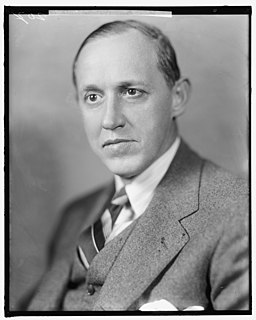A Quote by Hannah More
There is scarcely any fault in another which offends us more than vanity, though perhaps there is none that really injures us so little.
Related Quotes
Three or four million heads of households don't turn into tramps and cheats overnight, nor do they lose the habits and standards of a lifetime... They don't drink any more than the rest of us, they don't lie any more, they're no lazier than the rest of us.... An eighth or a tenth of the earning population does not change its character which has been generations in the molding, or, if such a change actually occurs, we can scarcely charge it up to personal sin.
We are more inclined to hate one another for points on which we differ, than to love one another for points on which we agree. The reason perhaps is this: when we find others that agree with us, we seldom trouble ourselves to confirm that agreement; but when we chance on those who differ from us, we are zealous both to convince and to convert them. Our pride is hurt by the failure, and disappointed pride engenders hatred.
...And then, just when everything is bearing down on us to such an extent that we can scarcely withstand it, the Christmas message comes to tell us that all our ideas are wrong, and that what we take to be evil and dark is really good and light because it comes from God. Our eyes are at fault, that is all.
There is no figure more common in scripture, and none more beautiful, than that by which Christ is likened unto light. Incomprehensible in its nature, itself the first visible, and that by which all things are seen, light represents to us Christ. Whose generation none can declare, but Who must shine upon us ere we can know aught aright, whether of things Divine or human.
Let us be peaceable as near as we can: let us relent of our own right: let us not strive for these worldly goods, honour and reputation: let us bear all wrongs and outrages, rather than be moved to any debate through our own fault. But in the meanwhile, let us fight for God's truth with tooth and nail.




































